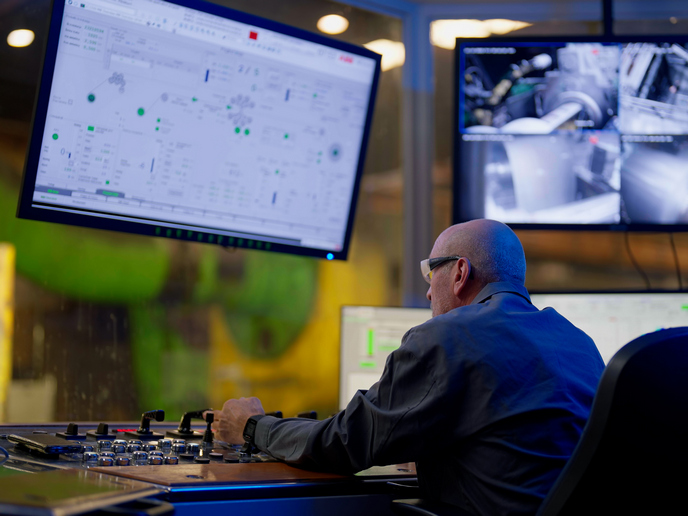Transitioning to smart automation benefits the metal industry and the environment
Primary and secondary steelmaking and investment casting of nonferrous metal alloys are highly energy-intensive processes due to the extremely high temperatures, complex chemical reactions and multiple processing stages. Heat losses, scrap recycling and the complexity of maintaining the temperature further increase the energy used. Manual sampling and measurements lag far behind digitised monitoring and control systems when it comes to optimising manufacturing processes. The EU-funded INEVITABLE project delivered such digital tools leveraging embedded cognitive reasoning to support autonomous process operation.
An evolutionary leap in the digital transition
“The metal industry, known for its conservative approach and limited digitisation, offers many opportunities for improvement. For example, predictive maintenance capabilities can detect potential equipment failures before they occur, minimising downtime and ensuring optimal energy efficiency. Using data analytics and machine learning, predictive modelling can identify patterns and trends to further optimise production efficiency and/or energy consumption,” explains Dejan Gradišar of the Jožef Stefan Institute and INEVITABLE project coordinator. INEVITABLE unlocked this potential with a suite of digital tools based on cognitive approaches. They led to demonstrated improvements in process efficiency, raw materials consumption, product quality and energy consumption in selected use cases covering several metallurgical processes.
Sensor technologies, data analytics and process control
The project delivered six innovative digital tools and a flexible digital infrastructure supporting them. The electric arc furnace (EAF)-refining monitor continuously estimates crucial EAF process values, improving EAF control and reducing energy consumption by up to 10 kilowatt-hours/tonne. The cold-rolling mill assistant improved quality and equipment performance, leading to a decrease in scrap and unplanned downtime (up to 25 %) and an increase in rolling speed by up to 45 %. The advisory tool for predicting nozzle clogging reduced production losses and quality degradation in continuous casting, reducing clogging by more than the predicted 20 % in one use case. “INEVITABLE’s aided stirring control in refining and continuous casting used real-time data to adjust stirring intensity during steel production. Camera-based stirring monitoring improved process monitoring and anomaly detection. Taken together, they ensured high productivity, reduced energy consumption and improved quality – the latter by more than 75 % based on quality indicators,” notes Gradišar. Finally, a smart lean management system implemented in a non-ferrous investment casting process improved traceability and optimised production resource utilisation, resulting in greater process efficiency (the rejection rate was decreased from 12 % to 8 %) and improved product quality. Finally, “INEVITABLE’s systematic methodology for selecting digital infrastructure tailored to a company’s needs ensures alignment with process and organisational requirements, which is crucial for seamless integration into existing workflows,” Gradišar adds.
Flexible tools that support industry and the environment
“Our project contributed to the formalisation of skilled workers' knowledge encapsulated in digital data-backed tools. The tools enable faster decision making and improved energy management. They also reduce dependency on critical measurements through data-driven models, supporting more efficient and cost-effective operations,” notes Gradišar. Finally, “by focusing on reducing energy consumption, increasing production efficiency and improving product quality, our project will not only benefit the metal industry but reduce its environmental impact through sustainable production practices and environmental management,” concludes Gradišar. INEVITABLE’s innovative tools and training materials will energise the nascent digital transition of energy-intensive industries with minimal ‘energy input’ on the part of adopters.
Keywords
INEVITABLE, energy, metal industry, casting, digital tools, process efficiency, data analytics, digital transition, process control, machine learning, predictive modelling, energy-intensive industries







